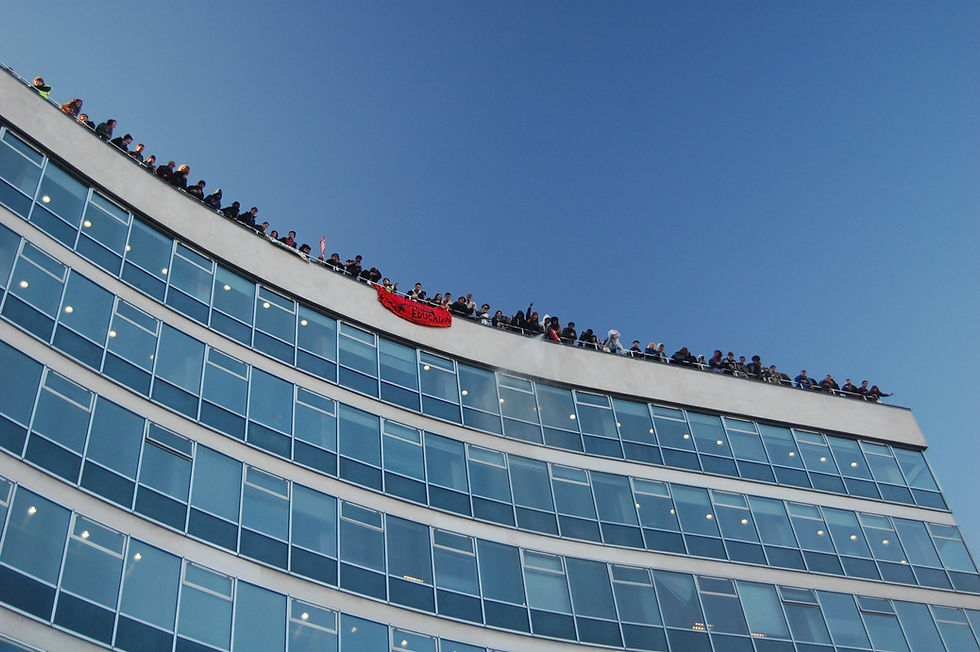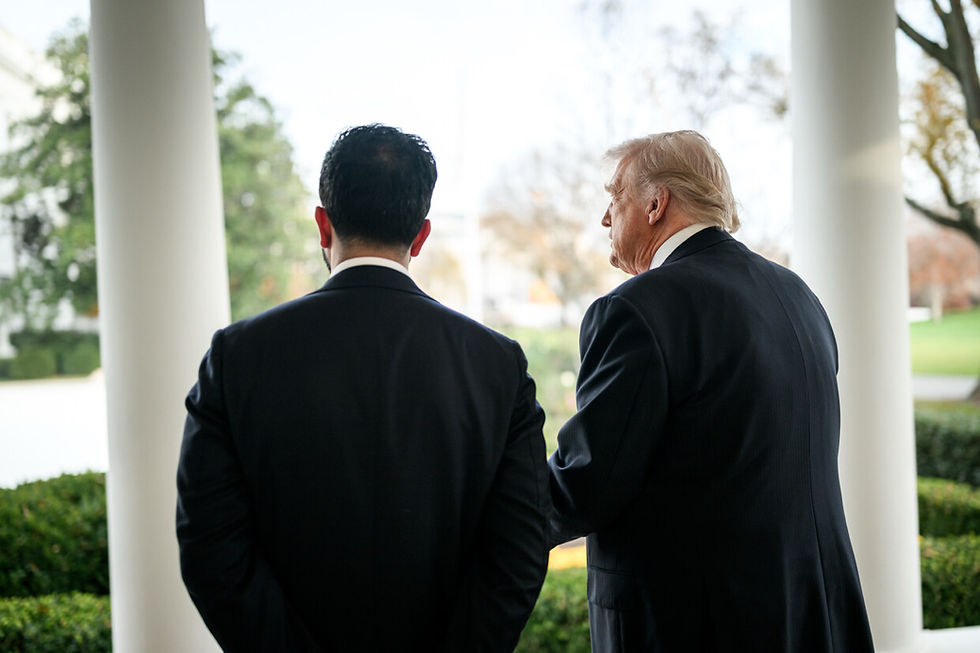US Follows Fortress Europe In Outsourcing Migration Strategy
- Gemma Gradwell

- Jul 27, 2025
- 3 min read
Updated: Jul 29, 2025

Trump’s plans to deport migrants to third countries may yet succeed, as a divided Supreme Court recently ruled that the Trump administration is able to restart its programme of deportations to countries such as Libya.
The administration had previously faced obstacles, with US District Judge Brian Murphy ruling in May that any efforts to deport migrants to Libya would violate a previous court order that barred migrant deportations to countries other than those of origin without due consideration of risk of persecution. Now, the Supreme Courts’ new emergency order is set to allow deportations to so-called third countries with no prior opportunity for appeal or contest. The administration’s chosen third countries are likely to include Libya, South Sudan and El Salvador based on previous precedent. The Court’s controversial 6-3 decision specified no legal rationale and was criticised by liberal justice Sonia Sotomayor in her 19-page dissent, where she wrote that “thousands will suffer violence” as a result.
The practice of using third-world countries in migration management in the US has an eerie precedent across the Atlantic. In the UK, the Conservative government’s controversial Rwanda plan, which would have seen asylum seekers processed entirely offshore, made headlines until it was discarded with the election of a Labour government in 2024. The short-lived plan was generally considered a failure, as no asylum seeker was ever forcibly transported to Rwanda. The EU’s partnership with Libya, however, has greater implications for Trump’s future plans.
EU-Libya Partnership
European states have been heavily criticised for cooperating with the Libyan coastguard on matters of migrant and border control, resulting in the coastguard returning thousands of migrants attempting the crossing to North African shores. The EU has so far spent more than 57.2 million euros in Libya towards its stated objective of “saving the lives of those making dangerous journeys by sea or land.” This financing has come in the form of training the Libyan coastguard to intercept and return small boats to Tripoli, where migrants are arbitrarily detained in detention centres such as Abu Salim.
Amnesty International has also previously observed EU states withdrawing their naval assets from the Mediterranean Sea, citing the aim of reducing the likelihood of encountering boats in distress at sea. Under the 1951 Refugee Convention and precedent under international law, EU ships are required to facilitate the rescue and transfer of refugees to a safe country. Libya faces no such responsibility, as it is not a signatory to the convention. Additionally, refugee rights are difficult to monitor in Libya as the state currently only allows the UNCHR to register individuals from nine nationalities as refugees.
Documented Human Rights Abuse
Reports by Médecins Sans Frontières detail the indiscriminate use of violence inside Libyan detention centres as punishment for disobeying orders or even requesting medical care. Only women and children are kept at Abu Salim, where detainees spoke of extreme and continuous sexual violence. The United Nations’ mission in Libya has also called for an investigation into the treatment of detainees in the eastern Gernada prison, after “disturbing footage” began to circulate on social media. Human rights groups have continuously accused both Libyan governments of political repression and allowing armed militias to operate with impunity across the country. Despite this, the EU’s reliance on Libya for migration control continues, with EU Migration Commissioner Magnus Brunner planning to meet with both Libyan governments this week after illegal border crossings increased by 48% in the first two months of 2025.
Implications for US Policy
Both the EU and the US, should it choose to use Libya as a third country destination, face questions about cooperation over migration with Libya in light of its’ continuing, well-documented human rights violations. Accusing the Trump administration of double standards, given that Libya is among 12 states facing a full travel ban to the USA, would not be far-fetched. Even beyond the glaring ethical concerns, continuing civil unrest and inflamed tensions within the Libyan National Army faction are likely to make any immediate deportation arrangements challenging.
But the trend of reliance on countries with questionable human rights records for migration management, legitimised by the EU and now pursued by the USA, exposes a dark truth. The West is outsourcing its so-called “migration crisis”, regardless of the consequences. Developing a functioning domestic migration policy is an anathema in the West’s era of populism – far better to look the other way. As the old adage goes, out of sight, out of mind. It is a devastating injustice that the most vulnerable continue to face the consequences.
Illustration by Will Allen/Europinion
.png)



Comments